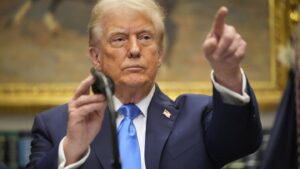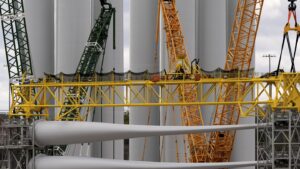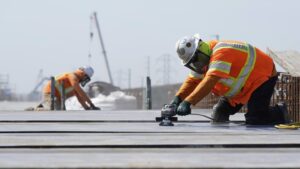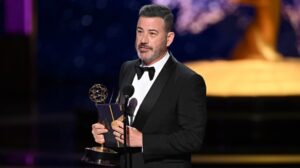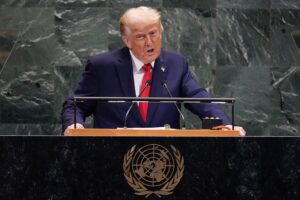The Dictatorship
Boston Mayor Michelle Wu, target of the Trump administration, will face Josh Kraft in fall election
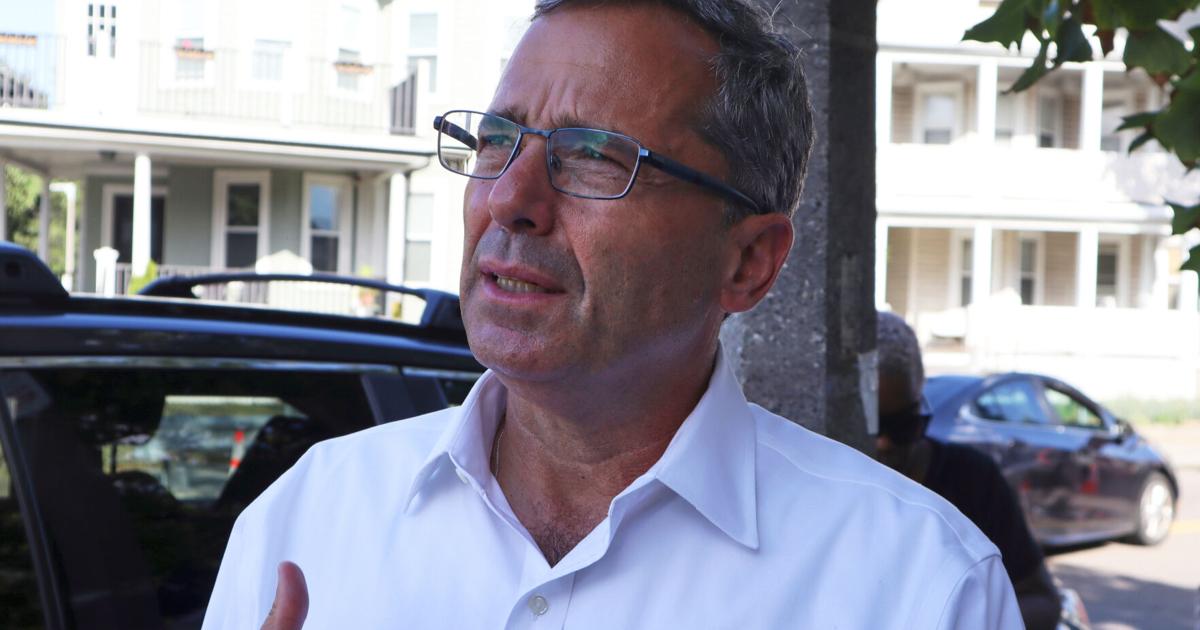
BOSTON (AP) — Boston Mayor Michelle Wua frequent target of the Trump administration, advanced in Tuesday’s preliminary election and will face Josh Kraft, the son of the Patriots owner, in November.
Wu, the city’s first Asian and female leader, has been bolstered in part by her defense of the city against attacks from the Trump administration. Members of the administration, often led by President Donald Trump’s border czar Tom Homan, have accused the city of not doing enough to crackdown on illegal immigration and threatened a surge in arrests. Boston is commonly known as a sanctuary city, and Wu has repeatedly said she wants it to be a welcoming place for immigrants.
Just last week, Trump’s U.S. Department of Justice filed a lawsuit against Wu, the city of Boston and its police department over its sanctuary city policies, claiming they’re interfering with immigration enforcement. In response, Wu accused Trump of “attacking cities to hide his administration’s failures.”
On Tuesday, the Department of Homeland Security put out a statement announcing the arrests of seven people as part of a crackdown in Massachusetts.
“Sanctuary policies like those pushed by Mayor Wu not only attract and harbor criminals but protect them at the peril of law-abiding American citizens,” Assistant Secretary Tricia McLaughlin said in a statement.
Speaking to her cheering supporters Tuesday night, Wu repeatedly took aim at Trump as well as Kraft and said the results showed that Boston “was not for sale” and that the mayor should answer to the “people of Boston, not a handful of billionaire donors.”
“The next eight weeks are about the remaining two names on the ballot. It’s a test of who we are. It’s a test of whether we believe in our city as a place of possibility and promise, whether Boston will keep going as a home for everyone,” she said. “It’s a test of whether Boston can still be that beacon of freedom, whether 250 years later, with tyranny again at our door, whether Boston still got it.”
Kraft, a fellow Democrat and a nonprofit leader, injected millions of his own personal money into his campaign and set records for spending in a Boston mayoral preliminary election. He has also been critical of Trump’s attacks and has pushed Wu particularly hard on housing, saying she hasn’t done enough to increase options and affordability in Boston.
Speaking to Ironworkers Local 7 in South Boston, Kraft said he was running because residents deserved to have a mayor “who listened to them” and would “deliver better streets, better schools, and a better future for them today.” He argued Wu was talking about Trump to distract from her record.
“I got into this fight because every day, I heard that too many people across Boston felt like that they don’t have a seat at the table,” he told supporters. “This campaign has never been about chasing headlines or currying favor with the political chattering class. It’s been about listening.”
Wu and Kraft bested two other candidates in the preliminary election: former school district committee member and veteran Robert Cappucci and community activist Domingos Darosa.
Wu highlights housing, crime and climate change
While visiting polls Tuesday, Wu said the Trump administration is targeting Boston because it “represents all that is good about our democracy.”
“We are proof of what’s possible when people come together, and we’re proof of everything that shows why they are wrong,” she said.
Wu, who often works with her infant daughter at her side, has also benefited from widespread support on the City Council and a string of endorsements from Democratic leaders. She also has used the pulpit of her position to highlight her successes around housing, combating climate change and reducing crime, rolling out a series of initiatives all summer.
David Woodruff, a retired research support specialist at the Massachusetts Institute of Technology, said he was supporting Wu because he wants “people who are progressive and are strengthening democracy” in office.
“I like the way she stands up to Trump, I like what she’s been doing on the national scene,” he said.
Kraft struggles to find message that resonates with voters
Kraft, who heads the Kraft Family Philanthropies and the New England Patriots Foundation, has targeted everything from bike paths to the cost of living in the city to his concerns about homelessness and drug addiction in one section of the city known as Mass and Cass.
Last week, Kraft and two top campaign advisers “mutually parted ways,” according to a statement from his campaign.
As of the end of August, Kraft had outspent Wu, $5.5 million to about $1.1 million, thanks in large part to more than $5 million in loans from the candidate to his campaign. Wu entered the final days of the campaign with much more cash in the bank, $2.4 million to about $1.3 million for Kraft.
Jeffrey Berry, a Boston political analyst and professor emeritus at Tufts University, said money is good for creating name recognition, but it’s not enough on its own to win an election. He said Wu has become a “symbol of democratic resistance to the president,” and that will be hard for Kraft to overcome in a city like Boston.
Kraft has switched between attacking Wu and portraying himself as someone who wants to bring positive change to the city.
In an interview with The Associated Press, Kraft said his conversations with voters indicate to him that Wu doesn’t have as strong a grip on the mayor’s seat as some might think.
“Everywhere we go, myself, our team, throughout the neighborhoods of this city — regardless of race, socioeconomics, ethnicity, language — we hear the same thing: People don’t feel listened to, people don’t feel connected to the mayor and the mayoral administration,” he said. “Some of the polls have a big margin, but let me tell you something: Polls don’t decide elections. People decide elections.”
Kraft supporter Remy Lawrence said she’s been impressed by his commitment to Boston’s young people. Kraft was CEO of the Boys & Girls Clubs of Boston and worked with the organization for decades. Lawrence said Kraft personally reached out to her after her 13-year-old son, Tyler, who participated in Kraft family youth programming, was murdered by a gunman in 2023 while walking near his grandparents’ home in the Mattapan neighborhood.
“I believe we need change in this city – I know we need change in this city,” she said. “We need a leader who is accessible, who’s accountable, who’s connected.”
The Dictatorship
Dr. Trump? The president reprises his COVID era
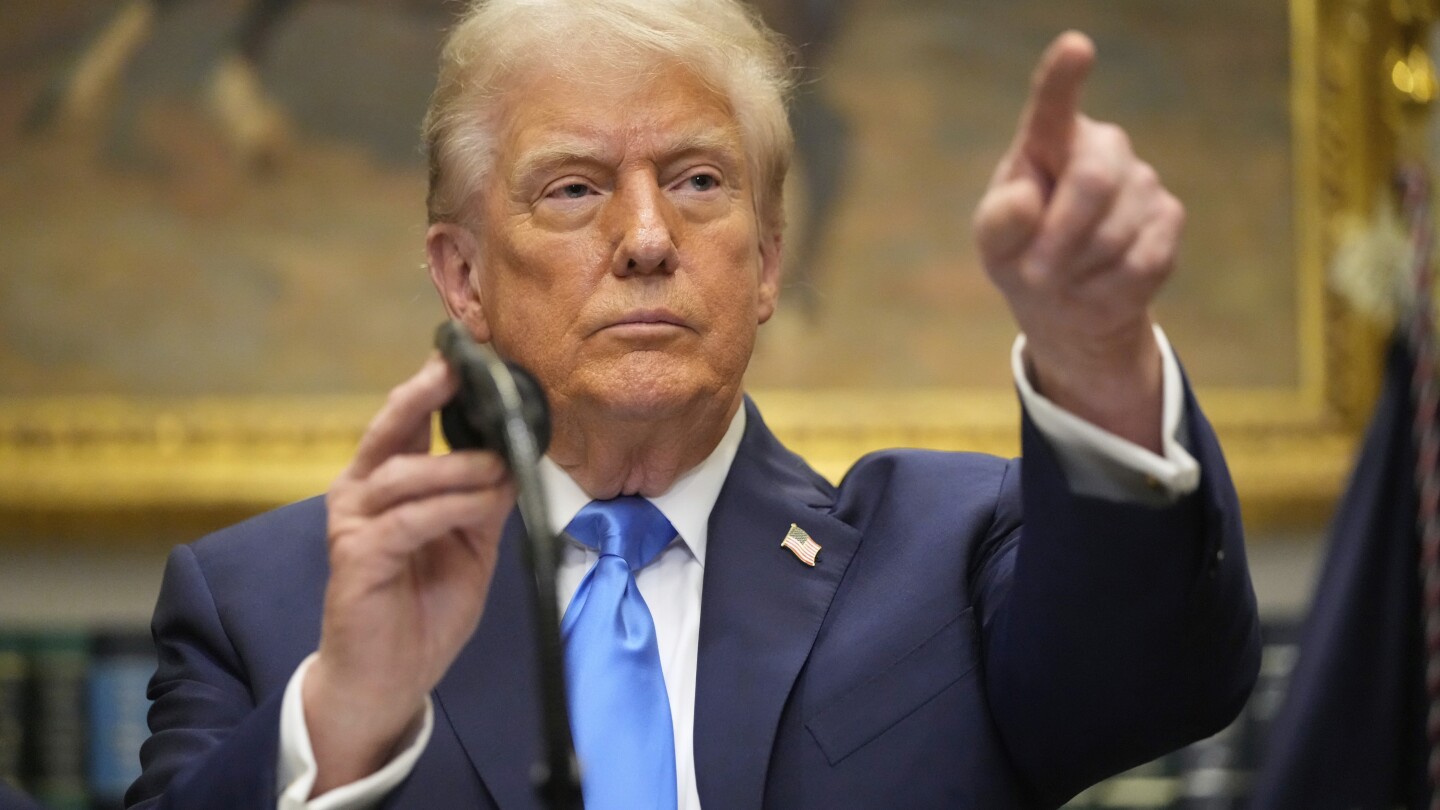
WASHINGTON (AP) — President Donald Trump isn’t a doctor. But he played one on TV Monday, offering copious amounts of unproven medical advice that he suggested — often without providing evidence — might help reduce autism rates.
Trump repeatedly implored pregnant women to avoid taking the painkiller Tylenol, the bestselling form of acetaminophen. That’s despite the American College of Obstetricians and Gynecologists long recommending acetaminophen as a safe option during pregnancy. He even weighed in on when children should be given painkillers.
Speaking alongside Health and Human Services Secretary Robert F. Kennedy Jr., himself a vaccine skepticTrump stopped short of opposing all vaccines. But he said key immunizations should be delayed, or combination shots should be given separately — even though it has been proven that vaccines have no link to autism.
“Don’t let them pump your baby up with the largest pile of stuff you’ve ever seen in your life,” he said.
Trump also wildly overstated how such shots — some of which protect against four diseases — are given.
“I think it’s very bad. They’re pumping, it looks like they’re pumping into a horse,” Trump said. “You have a little child. A little fragile child. And you’ve got a vat of 80 different vaccines, I guess, 80 different blends, and they pump it in.”
Dr. Trump redux
The presentation recalled the early days of the coronavirus pandemic during Trump’s first term, when the president stood for daily White House briefings and tossed out grossly inaccurate claims — including famously suggesting that injecting disinfectants could help people.
“I see the disinfectant that knocks it out in a minute, one minute. And is there a way we can do something like that by injection inside, or almost a cleaning?” Trump asked in April 2020. “As you see, it gets in the lungs, it does a tremendous number on the lungs, so it would be interesting to check that.”
He later claimed he’d been joking, but those briefings soon stopped. His tone stayed serious Monday.
The president suggested unspecified problems with the the safe and effective MMR — measles, mumps and rubella — vaccine and advised parents to wait years later than now, until age 12, for hepatitis B vaccines to be given to children.
The theme he hit harder than any other, though, was declaring a supposed link between autism and acetaminophen, which is known in most countries outside the U.S. as paracetamol. Trump repeated, “Don’t take Tylenol,” with increasing urgency and eventually shouted it.
Tylenol maker Kenvue disputed any link between the drug and autism and said in a statement that if pregnant mothers don’t use Tylenol when in need, they could face a choice between suffering potentially dangerous fevers or using riskier painkiller alternatives.
Trump, Kennedy and many of the administration’s top health officials all spoke, but largely repeated known statistics rather than new research findings. Trump appeared to acknowledge that science might not be on his side, saying at one point, “I’m just making these statements from me.”
“I’m not making them from these doctors,” the president conceded. “Cause when they, uh, talk about, you know, different results, different studies, I talk about a lot of common sense. And they have that, too. They have that too, a lot.”
But then he later insisted he’d “spoken to many doctors about everything we’re talking about.”
Many scientists were appalled
“The announcement on autism was the saddest display of a lack of evidence, rumors, recycling old myths, lousy advice, outright lies, and dangerous advice I have ever witnessed by anyone in authority in the world claiming to know anything about science,” Arthur Caplan, of the New York University School of Medicine’s Division of Medical Ethics, said in a statement. “What was said was not only unsupported and wrong but flat out malpractice in managing pregnancy and protecting fetal life.”
Ahead of the autism event, Trump had suggested that his administration had discovered new medical links that would dramatically explain why its rates have risen. But his preparation didn’t include learning how to pronounce acetaminophen, which tripped him up.
“Asedo … well, let’s see how we say that. Acid em … menophin,” Trump stammered before continuing, “Acetaminophen? Is that OK?”
Trump also insisted there was “no downside” to Americans heeding his advice “other than a mother will have to, as I say, tough it out a little bit” and avoid Tylenol for pain while pregnant.
“Everything I said, there’s no downside to doing it,” Trump said. “It can only be good.” Still, untreated fevers in pregnancy, particularly the first trimester, increase the risk for miscarriages, preterm birth and other problems, according to the Society for Maternal-Fetal Medicine.
The president tried to head off such criticism by blaming pharmaceutical companies and “maybe doctors” for having suppressed critical medical information previously. He said his statements were based on “the information that we have.”
“I’m making them out front, and I’m making them loud,” Trump said. “And I’m making them strongly.”
The Dictatorship
Federal judge lifts administration halt of offshore wind farm in New England
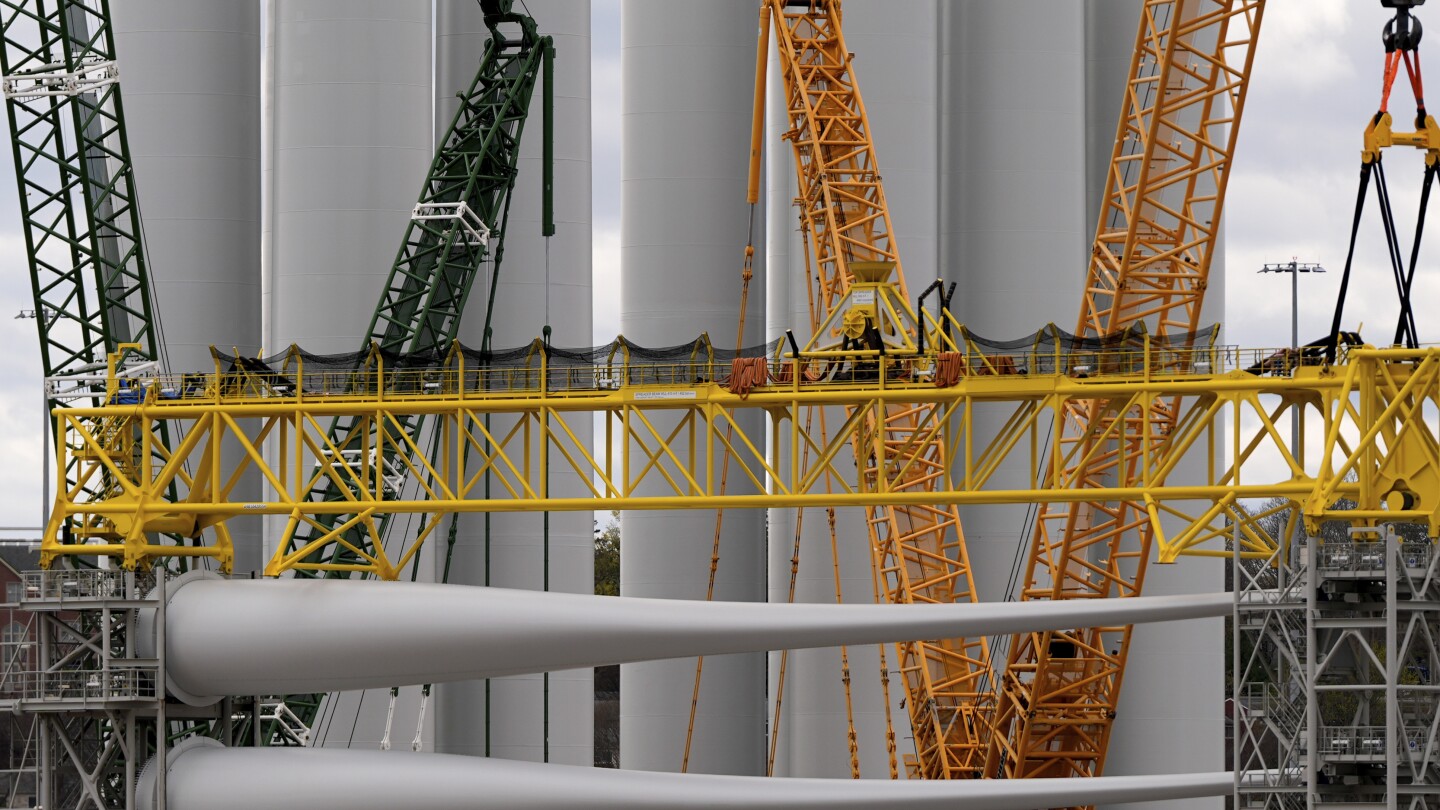
WASHINGTON (AP) — A federal judge ruled Monday that a nearly complete offshore wind project halted by the administration can resume, dealing President Donald Trump a setback in his ongoing effort to restrict the fledgling industry.
Work on the nearly completed Revolution Wind project for Rhode Island and Connecticut has been paused since Aug. 22 when the Bureau of Ocean Energy Management issued a stop-work order for what it said were national security concerns. The Interior Department agency did not specify those concerns at the time. Both the developer and the two states sued in federal courts.
Danish energy company Orsted and its joint venture partner Skyborn Renewables sought a preliminary injunction in U.S. District Court that would allow them to move forward with the project.
At a hearing Monday, Judge Royce Lamberth said he considered how Revolution Wind has relied on its federal approval, the delays are costing $2.3 million a day and if the project can’t meet deadlines, the entire enterprise could collapse. After December, the specialized ship needed to complete the project won’t be available until at least 2028, he said. More than 1,000 people have been working on the wind farm, which is 80% complete.
“There is no question in my mind of irreparable harm to the plaintiffs,” Lamberth said, as he granted the motion for the preliminary injunction. In his written ruling, he said Revolution Wind had “demonstrated likelihood of success on the merits” of its claim, adding that granting the injunction is in the public interest.
Interior Department spokeswoman Elizabeth Peace said the ruling means Revolution Wind “will be able to resume construction” while the Bureau of Ocean Energy Management “continues its investigation into possible impacts by the project to national security and prevention of other uses on the Outer Continental Shelf.”
The administration said in a court filing this month that while BOEM approved the wind farm, it stipulated that the developer continue to work with the Department of Defense to mitigate national security concerns. It said the Interior Department, to date, has not received any information that these concerns have been addressed.
Orsted said Monday that construction will resume as soon as possible, and it will continue to seek to work collaboratively with the administration.
Nancy Pyne of the Sierra Club said the court ruling “reaffirms that Donald Trump and his administration’s attacks on clean energy are not only reckless and harmful to our communities, but they are also illegal.” Trump is trying to “kneecap” renewable energy “in favor of dirty and expensive fossil fuels,” she said.
White House spokeswoman Anna Kelly said Trump was elected with a mandate to “restore our country’s energy dominance — which includes prioritizing the most effective and reliable tools to power our country. This will not be the final say on the matter.”
On the campaign trail, Trump vowed to end the offshore wind industry as soon as he returned to the White House. He wants to boost production of fossil fuels such as oil, natural gas and coal, which emit greenhouse gases that cause climate change, in order for the U.S. to have the lowest-cost energy and electricity of any nation in the world, he says.
His administration has stopped construction on major offshore wind farmsrevoked wind energy permits and paused permittingcanceled plans to use large areas of federal waters for new offshore wind development and stopped $679 million in federal funding for a dozen offshore wind projects.
Last week, the administration moved to block a separate Massachusetts offshore wind farm. That was just days after the Interior Department asked a federal judge in Baltimore to cancel previous approval to build an offshore wind project in Maryland.
Revolution Wind is supposed to be Rhode Island’s and Connecticut’s first large offshore wind farm, capable of supplying power to more than 350,000 homes, about 2.5% of the region’s electricity needs.
Connecticut Attorney General William Tong and Rhode Island Attorney General Peter Neronha, who are both Democrats, called the judge’s ruling a major win for workers and families, who need the project to stay on track so it can start to drive down unaffordable energy bills.
Connecticut Rep. Joe Courtney, a Democrat, said a multibillion-dollar project that is 80% complete and was fully permitted with input by the Pentagon is not a national security problem. The Interior Department “should take the hint and let the thousands of construction workers finish the job,” he said.
Orsted began construction in 2024 about 15 miles (24 kilometers) south of the Rhode Island coast. It says in its complaint that about $5 billion has been spent or committed, and it expects more than $1 billion in costs if the project is canceled. Rhode Island is already home to one offshore wind farm, the five-turbine Block Island Wind Farm.
___
McDermott reported from Providence, Rhode Island. AP Writer Susan Haigh in Hartford, Connecticut, contributed to this report.
___
The Associated Press’ climate and environmental coverage receives financial support from multiple private foundations. AP is solely responsible for all content. Find AP’s standards for working with philanthropies, a list of supporters and funded coverage areas at AP.org.
The Dictatorship
Trump wants to redistribute billions that were taken from California’s high-speed railroad
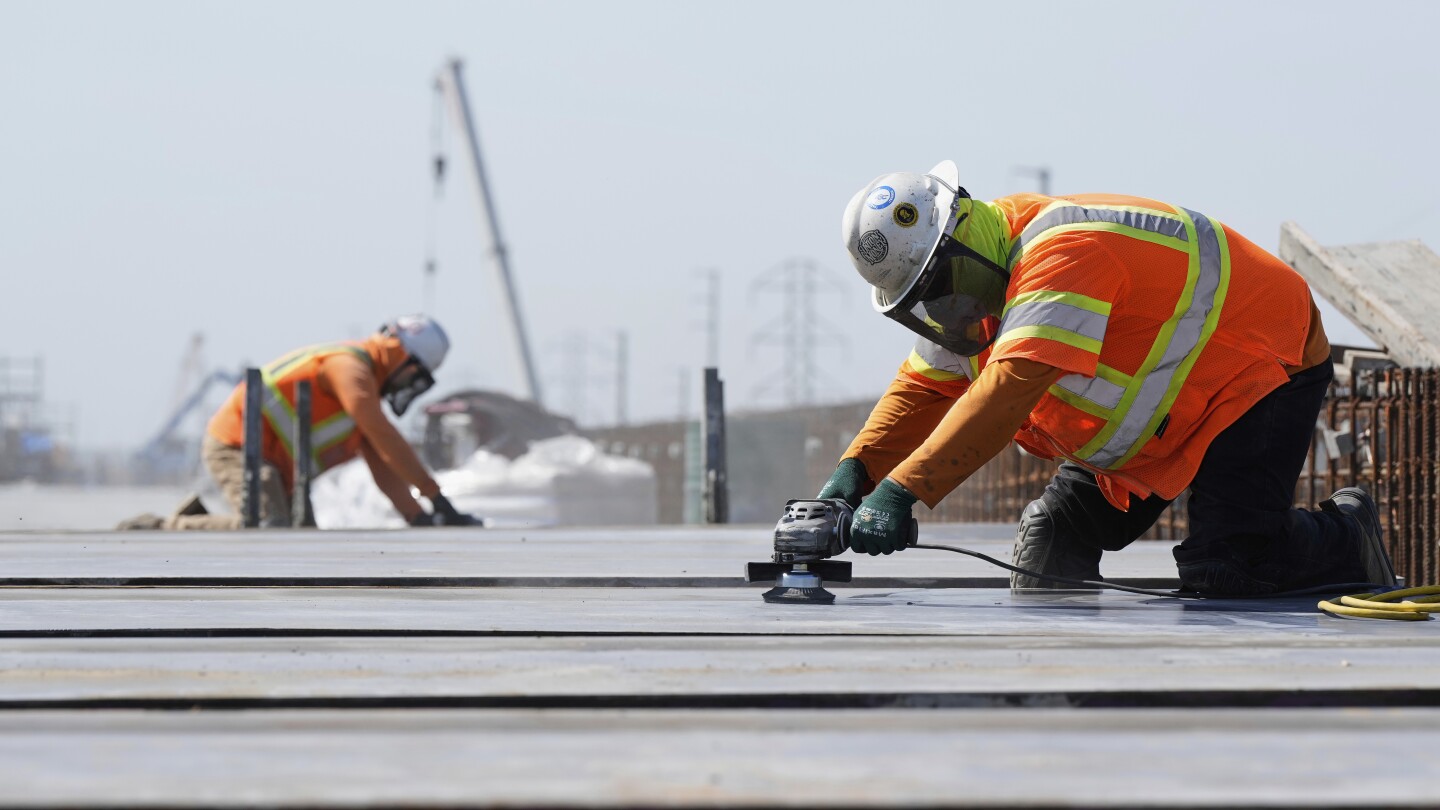
The Trump administration wants to redistribute $2.4 billion it pulled from California’s high-speed rail project as part of a new $5 billion program announced Monday to fund rail projects to boost passenger rail traffic nationwide.
The new program’s rules for states and others wanting to participate remove any mention of diversity or climate change dating to the Biden administration. The new program will also put a priority on projects in areas with higher rates of birth and marriage and projects that improve safety at railroad crossings.
The Trump administration has removed climate change and so-called DEI language from other grant requirements, and Transportation Secretary Sean Duffy took a jab at that Biden-era language and California Gov. Gavin Newsom’s rail project in his announcement.
“Our new National Railroad Partnership Program will emphasize safety – our number one priority – without the radical … DEI and green grant requirements. Instead of wasting dollars on Governor Newsom’s high-speed rail boondoggle, these targeted investments will improve the lives of rail passengers, local drivers, and pedestrians,” Duffy said.
The biggest chunk of this money the Federal Railroad Administration announced comes from the $4 billion that was pulled from the California project. The rest of the money comes from a combination of what was announced last year and what is in this year’s budget.
President Donald Trump and Duffy have both criticized the decades-old California project for its cost overruns and many delays that have kept the train that’s designed to connect San Francisco and Los Angeles from becoming a reality.
California officials said they will fight the effort to redistribute money they believe should be going to their project. They had already filed a lawsuit challenging the Trump administration’s decision to pull federal funding from the rail project.
“The FRA’s decision to terminate federal funding for California high-speed rail was unlawful, unwarranted, and is being challenged in federal court. Now, their attempt to redirect a portion of that funding, currently the subject of litigation, is premature,” said Micah Flores, a spokesman for the California High-Speed Rail Authority. “The Authority has been prepared for this possibility and will take imminent legal action to block this misguided effort by the FRA.”
The focus on areas with higher birth and marriage rates reflects Trump’s executive orders that make spending that benefits American families a priority in his administration, according to an FRA spokesman.
The Federal Railroad Administration said railroad crossings are important to address because more than 200 people a year are killed when trains collide with vehicles or pedestrians at crossings. That has long been something the government and railroads have worked to address, but it is costly to build bridges or underpasses that allow cars to safely bypass the tracks.
Even though the money is targeted toward improving passenger rail, some of it will almost certainly go to improvements on the nation’s major freight railroads because Amtrak uses their tracks for most of its long-distance routes across the country.
The administration also said it would give priority to projects that improve the traveling experience for families by adding amenities like nursing mothers’ rooms, expanded waiting areas and children’s play areas in train stations.
Applications for this money are due by Jan. 7.
___
Associated Press writer Sophie Austin contributed to this report from Sacramento, California.
-
Uncategorized11 months ago
Bob Good to step down as Freedom Caucus chair this week
-

 The Josh Fourrier Show11 months ago
The Josh Fourrier Show11 months agoDOOMSDAY: Trump won, now what?
-

 Politics7 months ago
Politics7 months agoFormer ‘Squad’ members launching ‘Bowman and Bush’ YouTube show
-

 The Dictatorship7 months ago
The Dictatorship7 months agoPete Hegseth’s tenure at the Pentagon goes from bad to worse
-

 Politics11 months ago
Politics11 months agoWhat 7 political experts will be watching at Tuesday’s debate
-

 The Dictatorship7 months ago
The Dictatorship7 months agoLuigi Mangione acknowledges public support in first official statement since arrest
-

 Politics11 months ago
Politics11 months agoHow Republicans could foil Harris’ Supreme Court plans if she’s elected
-

 Politics7 months ago
Politics7 months agoBlue Light News’s Editorial Director Ryan Hutchins speaks at Blue Light News’s 2025 Governors Summit



